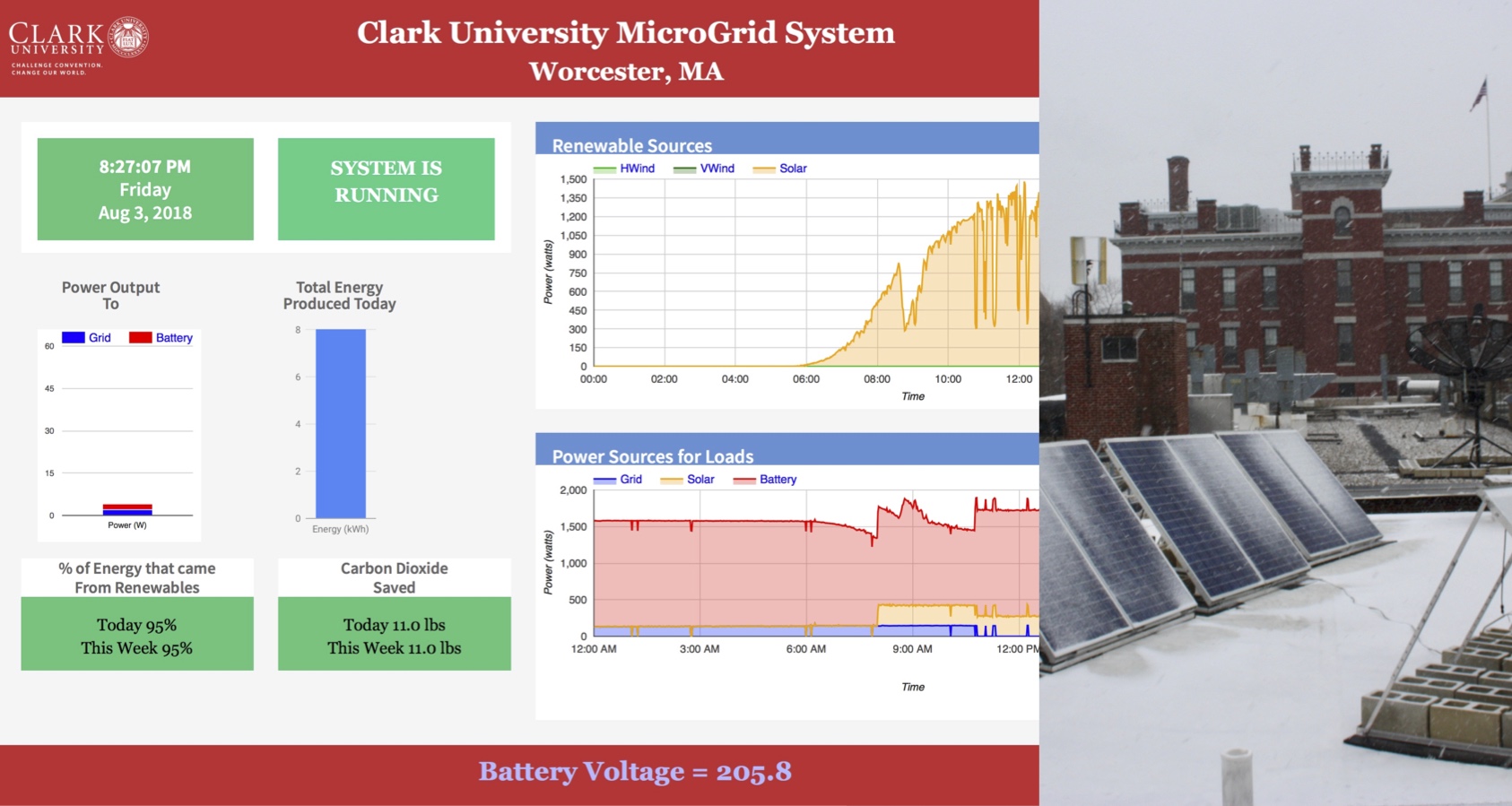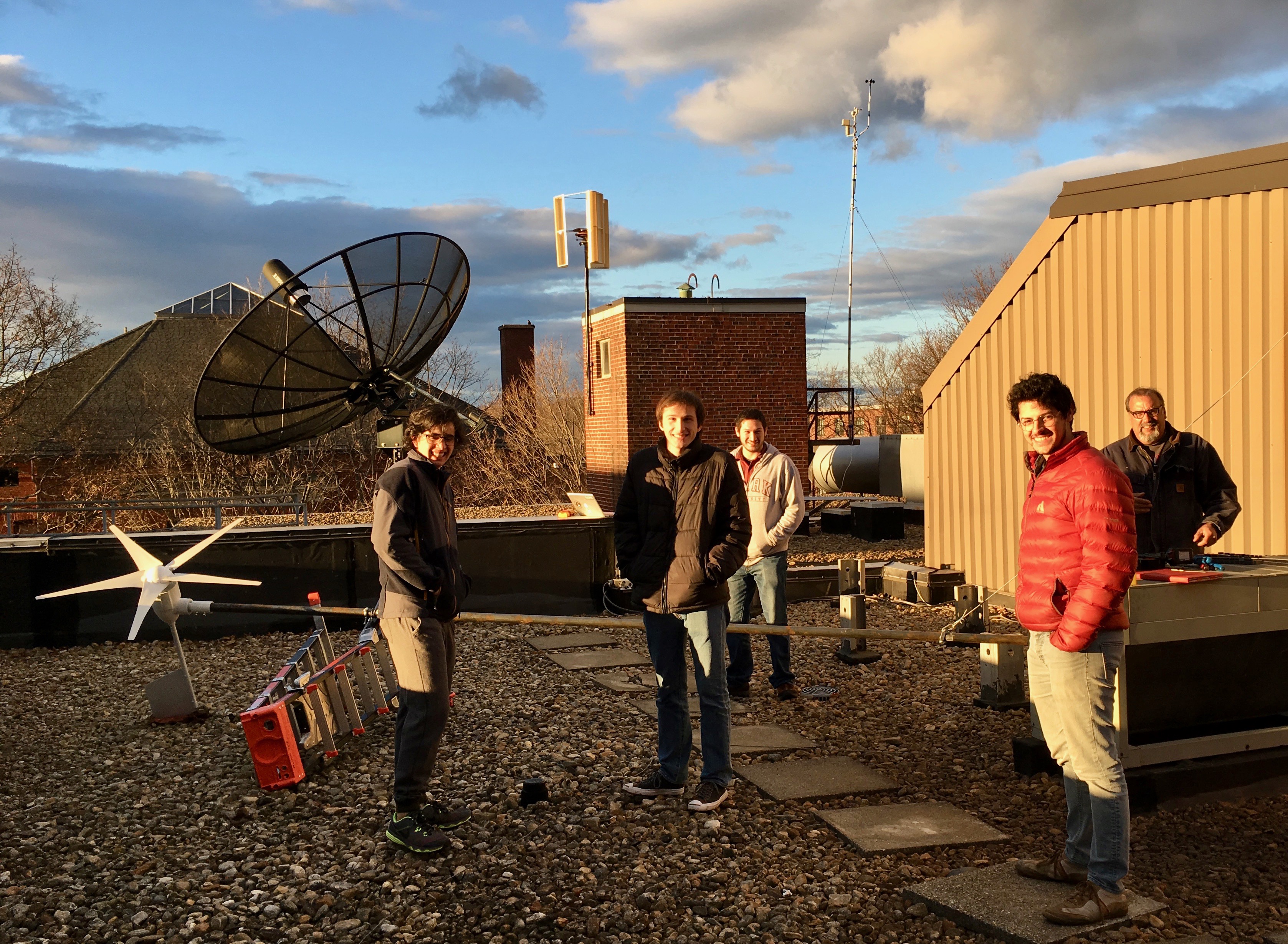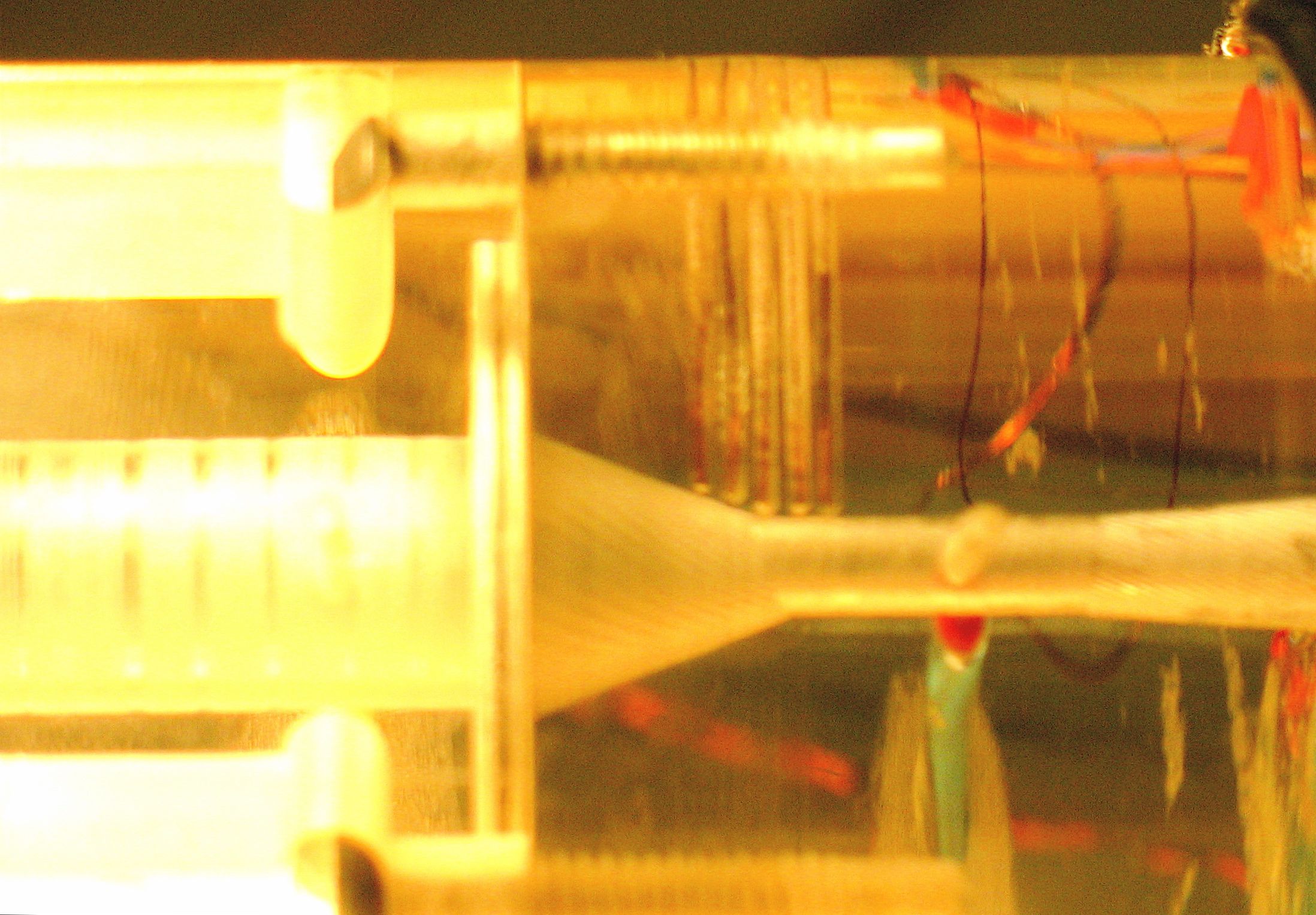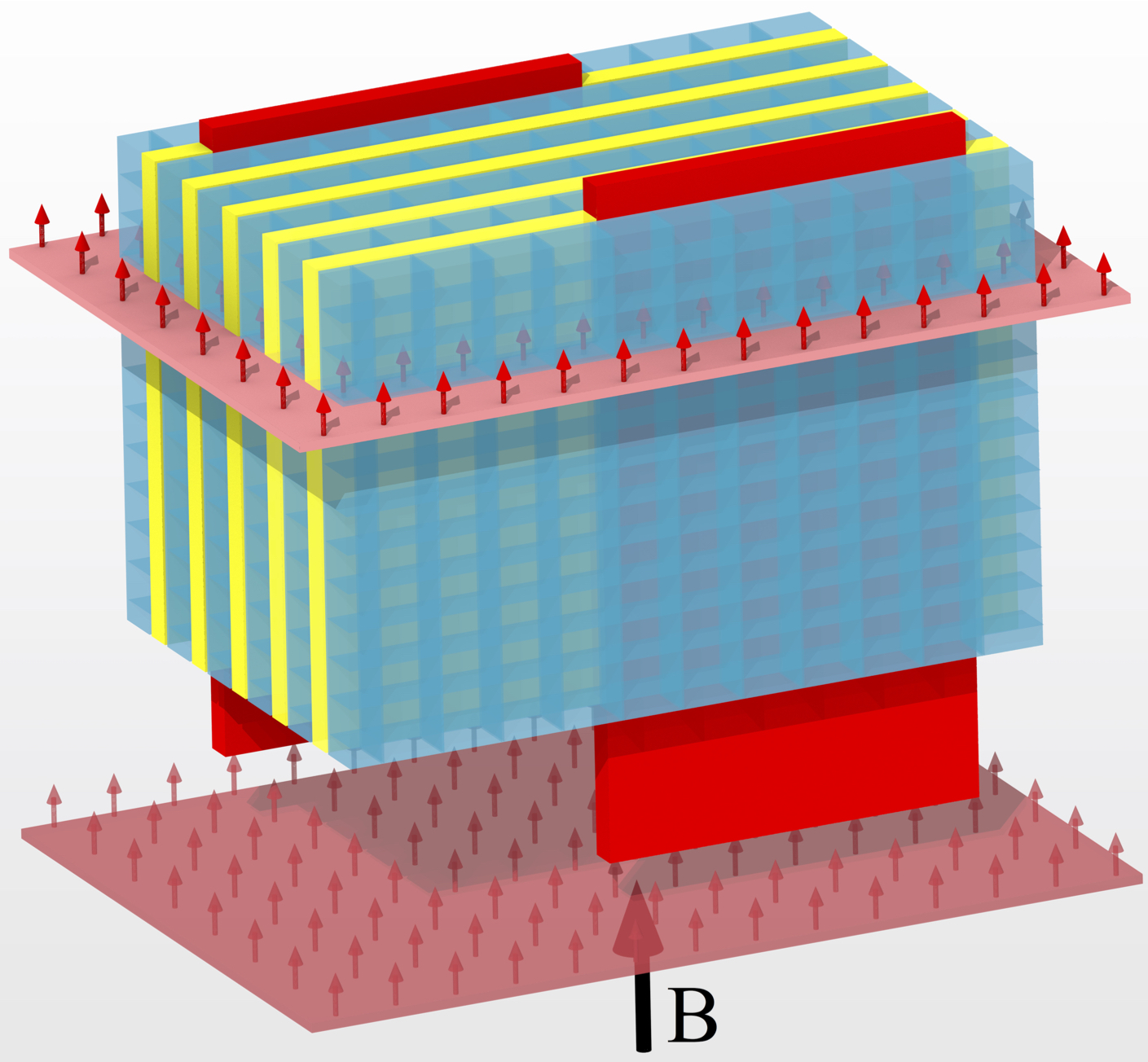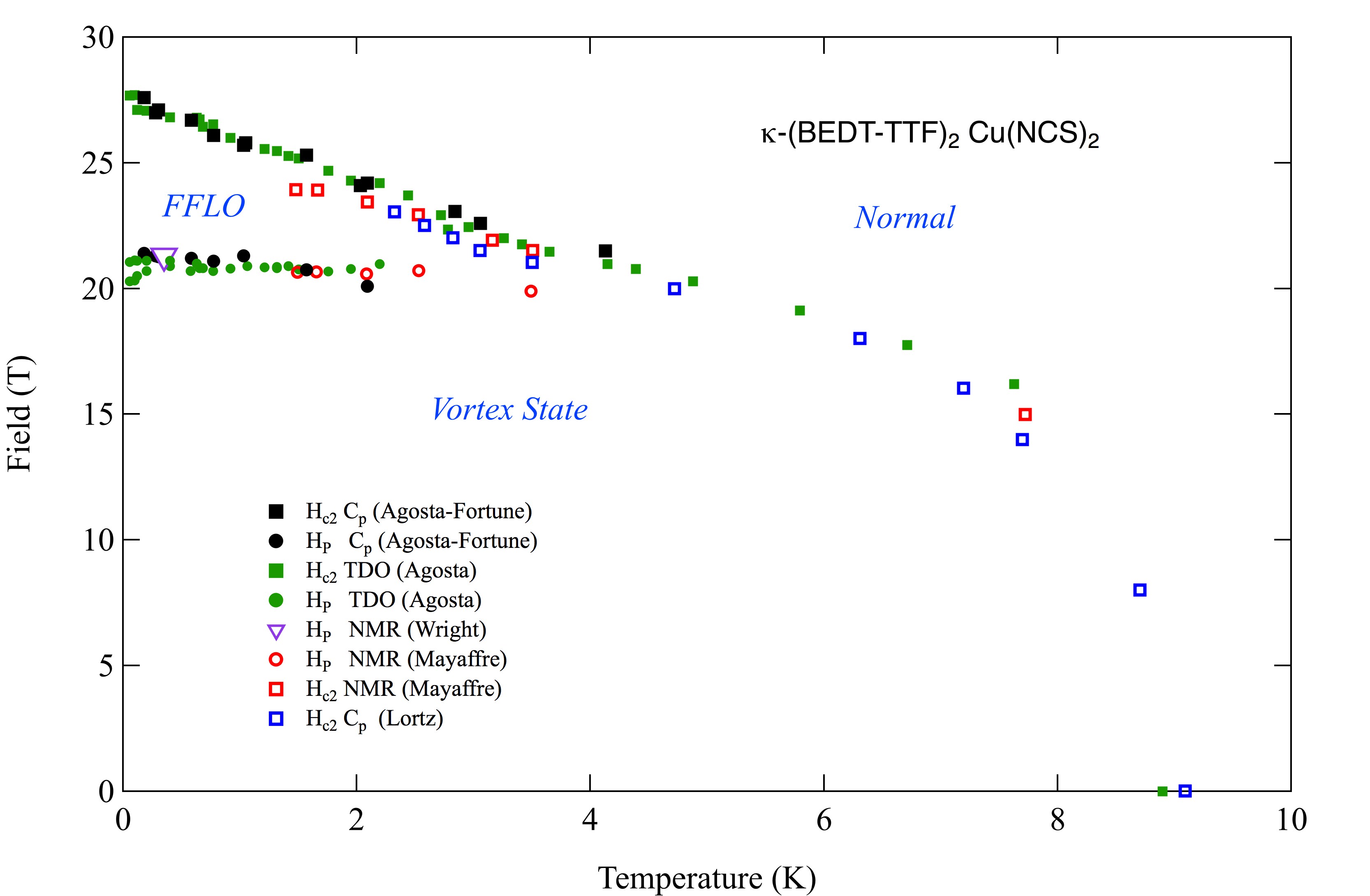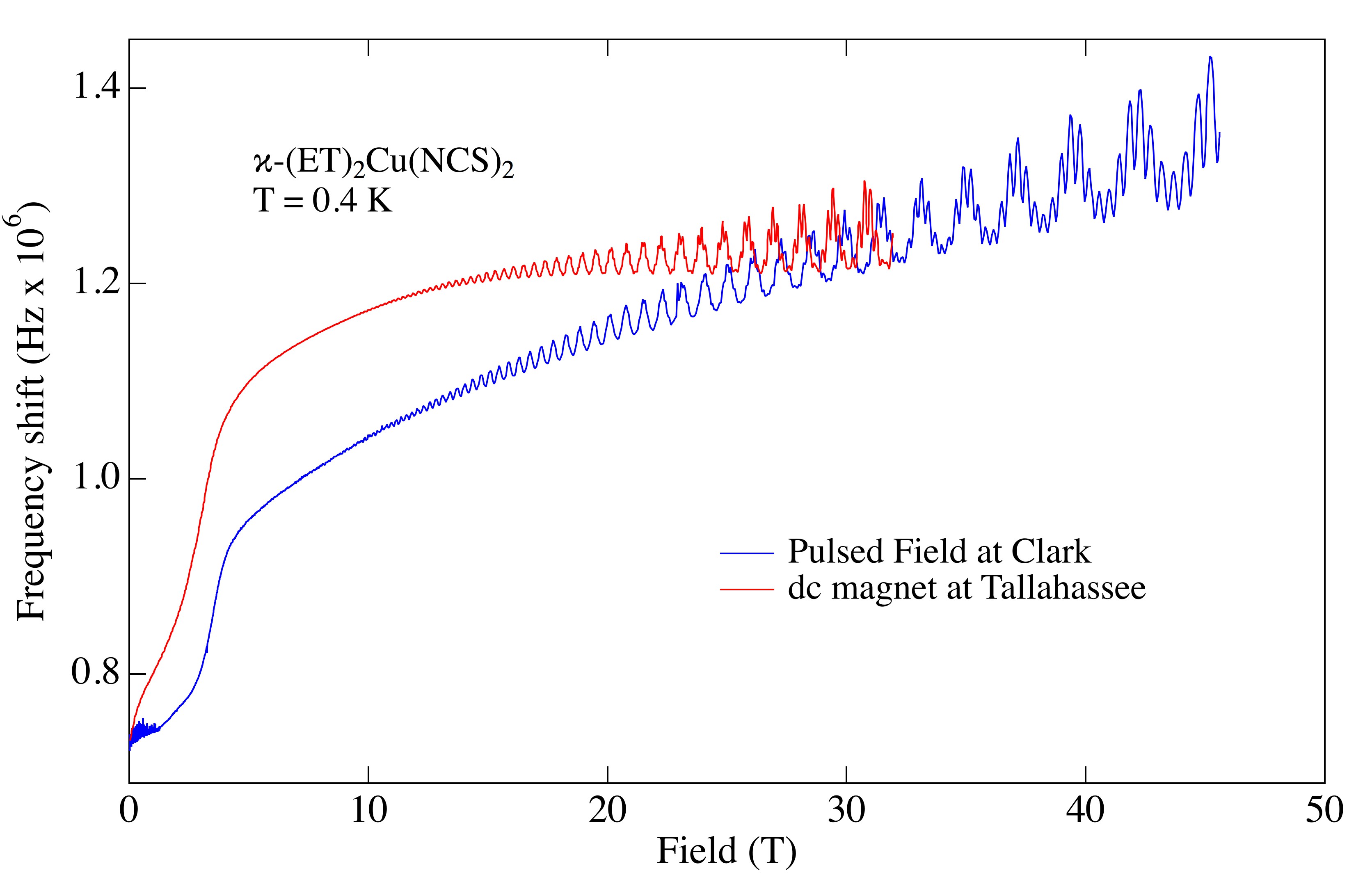Overview
The research conducted by Prof. Agosta's group spans a continuum from:
basic research -> to applied research -> to technology implementation,
in the fields of
Superconductivity, Bernoulli Heat Pumps, and Renewable Energy DC Nanogrids.
In all of the research that is done in his group, carefull experiments and computer simulations lead to insights into the inner workings of physical systems or solutions to practical problems. The solutions to the problems span many disciplines of physics including quantum mechanics, electricity and magnetism, and thermodynamics. Although the areas of research and techniques are diverse, the research thread that runs through all of the projects is the quest for new and more accurate ways to make measurements of novel or extreme phenomena. The areas of research are introduced below.
Mechanisms of Superconductivity
Superconductivity is one of the great unsolved problems of condensed matter physics. For over 100 years physicists have been trying to understand the quantum mechanical mechanism that causes electrons (actually quasiparticles) to form pairs that can carry current with no dissipation. We employ record breaking magnetic fields and temperatures near absolute zero to study the quantum mechanical origins of superconductivity. Our discovery of the exotic FFLO state of superconductivity promises to provide insight into the details of the Cooper pair interaction. Read more...
Bernoulli Heat Pumps
The idea that a gas will cool in a venturi has been know for decades. Using a venturi to make a heat pump required an innovation from studies of noble gas mixtures, rocket science, and vacuum cleaner technology. Read about how a startup company co-founded by Prof. Agosta created a cooling system with only environmentally safe refrigerants.
Renewable Energy
Photovoltaic panels (solar panels) produce DC power. LED lights, computers, flat screen TVs phones tablets, virtually all electronics, even electric cars, use DC power. So why do we convert all of of our renewable energy power to AC power and then back again to DC power when we need to use it? We have built a renewable energy nanogrid that as much a possible uses only DC electricity. We will compare its efficiency to similar traditional AC systems.
Meet the Group
Charles C Agosta cagosta@clarku.edu - Group Leader
Raju Ghimire rghimire@clarku.edu - Graduate Student
Brett Laramee blaramee@clarku.edu - Graduate Student
Camille Bales cbales@clarku.edu - Undergraduate Student
Bradley Brownell bbrownell@clarku.edu - Undergraduate Student
Owen Ganter oganter@clarku.edu - Undergraduate Student
Tim Jones tjones@clarku.edu - Undergraduate Student
Raju Ghimire rghimire@clarku.edu - Graduate Student
Brett Laramee blaramee@clarku.edu - Graduate Student
Camille Bales cbales@clarku.edu - Undergraduate Student
Bradley Brownell bbrownell@clarku.edu - Undergraduate Student
Owen Ganter oganter@clarku.edu - Undergraduate Student
Tim Jones tjones@clarku.edu - Undergraduate Student
